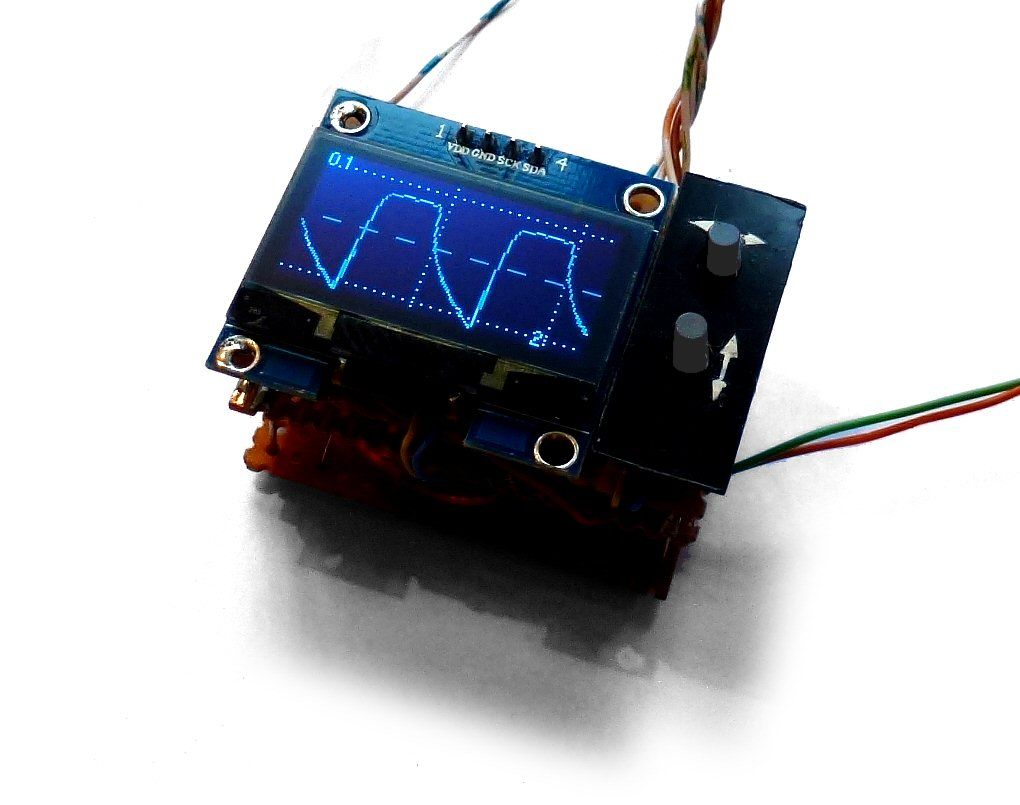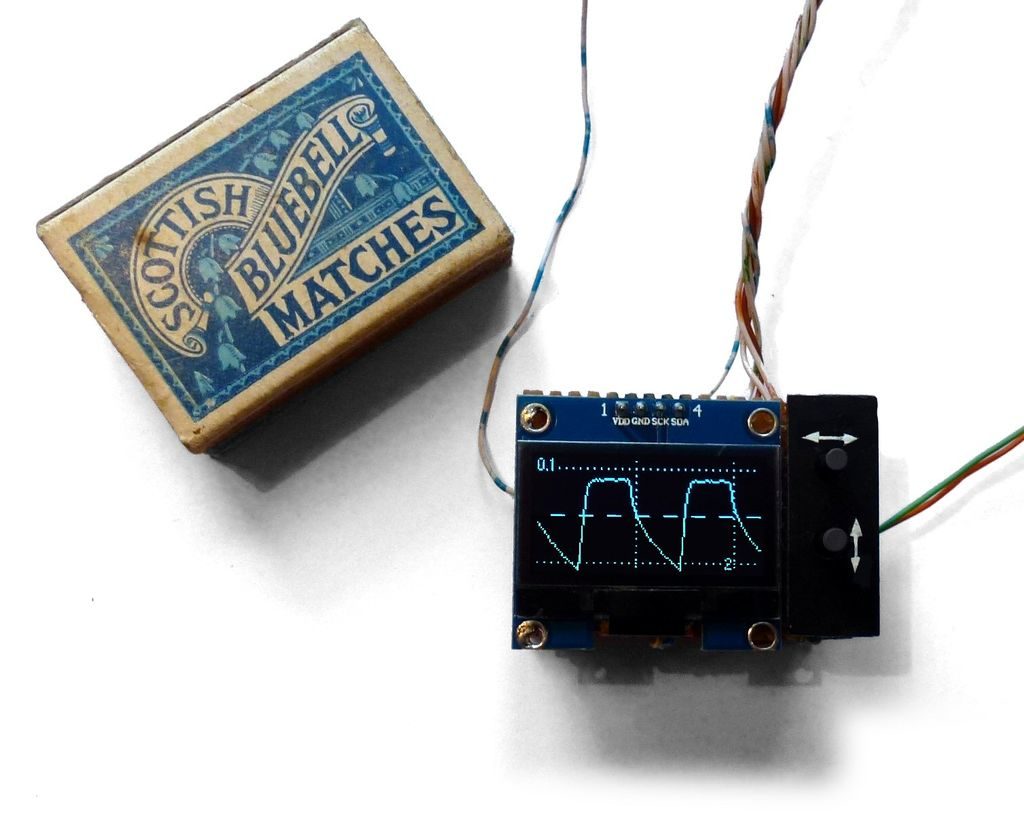ArdOsc is a matchbox-sized, Arduino Nano-based oscilloscope

Oscilloscopes come in all different shapes and sizes, and now with just a few discreet components, maker Peter Balch has been able to turn an Arduino Nano into an oscilloscope the size of a matchbox.
The simplest version of this device, which he calls the “ArdOsc,” displays data on a computer screen, but a 1.3” OLED can also be added if you want to use it on its own.

His build write-up goes through several versions of the instrument, progressively adding capabilities including a logic display, signal generator, and other useful tools. It’s certainly worth checking out, whether you need tiny test equipment or just want to marvel at how something this small can be made!
This oscilloscope costs the price of an Arduino Nano, plus a few pence for resistors, etc. Its specifications are:
- Max 1M samples/second, min 1000sps
- 8-bits per sample
- DC 0-5V; AC +/- 550mV, AC +/- 117mV, AC +/- 25mV
- USB “PC scope” or built-in display
- Could be battery-powered
- Optional logic display
- Optional frequency meter
- Optional voltmeter
September 21st, 2018 at 08:58:52
Great project, excellent description, well done.
Thanks for sharing this.
Congratulations.
September 24th, 2018 at 15:12:08
This is so awesome! I was specifically looking for a nano based scope but ended up biting the bullet and purchasing a Hantek. Ive written a few Java programs lately that take serial data from Arduino … wonder what I could come up with in terms of scope software for this project…
And you really surprised me when you said Interrupts are generally not a good idea… I always assumed they were more efficient than polling especially since we cant truly multi-thread on an arduino … you got 40 years writing code for hardware … im taking word for it and re-thinking my interrupt dependence … man I feel like such a noob… lol